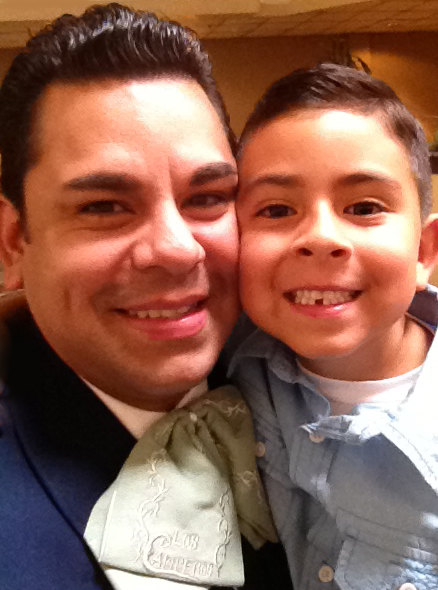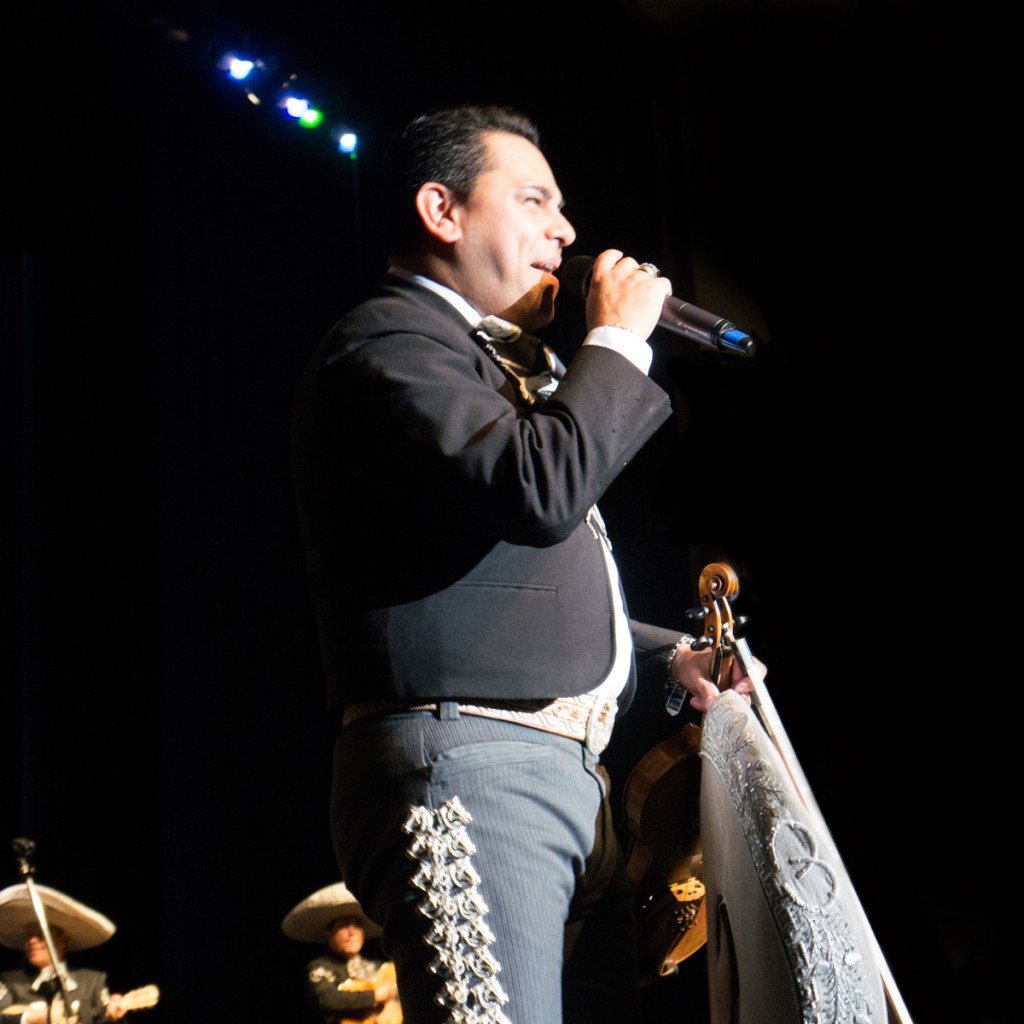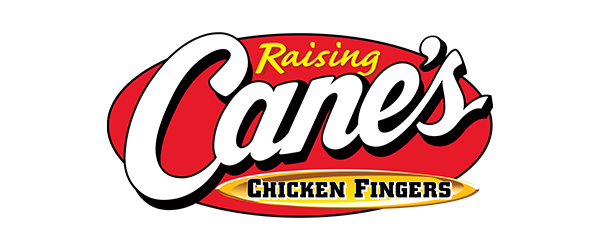Raúl Cuéllar
In this exclusive feature interview for mariachimusic.com, Jonathan Clark talks with San Antonio mariachi luminary Raúl Cuéllar, Jr. about how he worked his way up from humble youth groups to the greatest mariachis in the world.
JC: When and where were you born, Raúl?
RC: July 31, 1976. Born and raised in San Antonio.
JC: So how did you initially get involved with mariachi music?
RC: Actually, it was one of my older cousins who introduced me. His name is Óscar Garza. He still has a group in San Antonio named Mariachi Festival. But before he had his own group, he used to play with Mariachi Infantil Guadalupano at Our Lady of Guadalupe church. One day he and another cousin of mine, Miguel, were going to a rehearsal for the Mass. It was the summer of 1985, and I was 9 years old. I didn’t want to go at first, but they prodded me and said, “Bring your ball. If you get bored, you can play basketball outside in the court while we practice.” I started shooting baskets while they began practicing inside. They left the door open, and I could hear them rehearsing religious songs like “Señor, Ten Piedad,” “Gloria,” and “Aleluia.” It caught my attention.
I have to confess that I wasn’t a big fan of mariachi music when I was growing up. My parents and my cousins used to listen to it all the time, but what I liked best back then was Michael Jackson!
Anyway, the music they were practicing caught my ear, and I went inside. I sat down on my ball right in the middle of their rehearsal, listening to everything and looking around in amazement. Their director, an older gentleman by the name of Alejandro Ramírez, asked me if I liked what I heard. “Yeah, it sounds pretty cool!” I told him. He asked me which instrument I liked the most, and I pointed to the vihuela my cousin Miguel was playing. “I already have your cousin on that. Why don’t you try this one?” he said, handing me a violin. “What do I do with it?” I asked. I’d never picked one up before. “Just copy the other violin players,” he said. “Whatever they’re doing, you do it, too.” So that’s basically how I learned to play the violin, watching the older kids and asking lots of questions. I asked my mom if I could join the church mariachi, and she said yes. And that’s how it all began.
JC: So you only played mariachi music in the church?
RC: We would practice during the week and play the Mass on Sundays. Sometimes the director would take us to a park to play for the public and they would give donations to the church, but it was all church affiliated.
JC: When did you start playing outside the church?
RC: My cousin Óscar got the urge to start a youth mariachi independent from the church, so he started his own group and called it Mariachi Festival, and he invited me to join. I was 12, going on 13 at the time. That’s where I started learning the sones, rancheras, boleros — the total opposite of what I’d been playing in the church. We started working private parties and weddings, but we still played the Mass on Sundays. I stayed with my cousin’s group for about three and a half years.
JC: Which was your next mariachi?
RC: Right after I left Festival, I got an invitation from Belle and Juan Ortiz to substitute with Mariachi Campanas de América at Fiesta Texas amusement park. I had just turned 16. I missed playing mariachi music and wanted to join another group, but there was no opening for me in Campanas at that moment. Another violinist named Roy Quintero happened to be helping out Campanas at that same time, and he asked me if I wanted to help him form a new group. “Sure!” I said. So we started our own mariachi and called it Los Caporales de San Antonio.
JC: How long did you stay with Mariachi Los Caporales?
RC: We started in 1993. I guess I was in that group for about three and a half years, too. Then in 1997, I joined Mariachi Campanas de América.
JC: How long were you with Campanas?
RC: Only about a year. The group was pretty popular at the time. They treated me well, and the pay was good. At first it was fun to play with all the additional instruments — accordion, trombone, percussion, keyboard, et cetera — but the music and the direction they were going turned out not to be my cup of tea, so in 1998 or ‘99, I left.
JC: Where did you go from there?
RC: It turned out that right around the time I left Campanas, a lot of the guys from Los Caporales had left and started a new group, Mariachi Azteca de San Antonio, along with some ex-Campanas members, and I ended up joining them. I also stayed about three and a half years with Azteca. I guess three and a half years with one mariachi was about my limit back then!
JC: Where did you study music?
RC: That’s a funny thing. I never went to music school or had a formal violin or vocal lesson. I just learned through imitating and asking questions. I taught myself to read music. Later on, when I was hired as a mariachi instructor in the schools, I had to analyze what I was doing in order to be able to teach it.
JC: What vocalists were you influenced by?
RC: Heriberto Molina “El Cura” was a major inspiration for me, but I didn’t have his voice, so I listened more to Mario Santiago and later, Pancho “El Pilón,” and Manuelito Alcaraz. And I listened to the singers in Los Camperos and Sol de México, too. I was much more influenced by the voices of mariachi group members and by vocalists from unrelated musical styles — crooners like Frank Sinatra, Dean Martin, Michael Bublé, Harry Connick, Jr.; even Cristián Castro — than I was by popular ranchera singers. I got bits and pieces from everywhere and tried to apply these to my own singing, in search of my own identity. It wasn’t until I was in Sol de México that I started listening seriously to the classic recordings of the great ranchera singers, at José Hernández’s suggestion.
JC: So how was it that you joined Mariachi Sol de México?
RC: That’s a crazy story! First, let me backtrack a little…
Back when I was about 10, playing in Mariachi Infantil Guadalupano, one day I went with my dad to the supermarket. There was a bin by the door full of cassettes, and I went straight to it, looking for mariachi music. I found a tape by a group I’d never heard of called Mariachi Sol de México, and my dad bought it for me. Up until that point, the only two mariachis I’d heard recordings by were Vargas and Camperos. I didn’t even know the names of any other famous mariachis, which was why I was rummaging through that bin, looking for something new. When I took that cassette home and listened to it, the first thing that attracted my attention was the trumpet. And I just fell in love with the sound of that group!
After that, I became a Sol de México fanatic, and the other guys in the group used to tease me about it. They were all hardcore Vargas or Camperos fans; I was the only Sol de México fan. Well, by the time I was in Los Caporales, I had my own truck. Compact discs had come out by then, and I owned every single Sol de México CD. In my truck, all you would hear was Sol de México. The guys who rode with me would get upset and say, “Dude, put on Vargas, put on Camperos, put on América!” and I would say to them, “Hey, you’re in my truck, and in my truck, this is what we listen to!”
JC: Wasn’t Mariachi Vargas already a huge influence in San Antonio, due to the conference that Belle and Juan Ortiz started back in ‘79, where they used to bring that group every year?
[Editors note: This was an earlier San Antonio mariachi festival, unrelated to the current Mariachi Vargas Extravaganza.]
RC: Oh, yeah! I remember one year they took the church group to see Vargas at that event, and we were all really inspired. I’ll never forget that. I got autographs from Juan Pinzón and Heriberto Molina, and I still have them. Back in the eighties and into the nineties, if you went into a record store in San Antonio, at least 90% of the mariachi music you’d find was Vargas. They were the number one influence on the Texas mariachi scene, and still are.
JC: So tell me how you finally got into Sol de México.
RC: Well, one of the guys in Mariachi Azteca used to play with Mariachi Juvenil Tecalitlán. His name is Arturo Pasalagua, and he’s with Mariachi Cobre now. Well, by 2002 he had moved to LA, and he’s the one who told José Hernández, “Hey, I’ve got this friend back in San Antonio who’s a big Sol de México fan, and if you’re ever looking for a violin player, you should really give him an audition.” The one who contacted me was “El Zopi,” Héctor Castro. “José Hernández asked me to call you,” he said. “You’ve been highly recommended by Arturo, and we’d like you to come audition for Mariachi Sol de México.”
At first I thought it was a prank, but later I called back and confirmed that the offer was real. Well, I went to Los Angeles, passed the audition, and joined the group. I moved out here to LA, and I’ve been here ever since.
JC: What was it like being in Mariachi Sol de México?
RC: The five years I spent with Sol de México, from 2002 to 2007, were some of the best years of my career. They were my steppingstone from the minor to the major league. In Sol, I learned stage presence and how to interact with the public. I’ve carried that with me ever since, and later on I took it to Camperos and Vargas. I owe a deep debt of gratitude to José Hernández for all he taught me about singing, playing, and performing in general.
JC: What was the next stage in your career?
RC: In 2007, I left Sol de México. My last day at Cielito Lindo Restaurant was a Thursday. Word travels fast in mariachi circles, and right away I started getting invitations from other groups, but I decided to take that weekend off, to spend some time with my son. That Monday, I got a call from Chuy Guzmán of Los Camperos. He said, “Hey, we’d like you to come down to La Fonda this Thursday. Bring your violin and your black traje.” “What’s the deal?” I asked. “Am I auditioning, or do you just want me to help you out?” “Just come,” was all he would say. Well, I started playing with them that Thursday evening at La Fonda Restaurant, exactly one week after I’d left Sol, and I’m still with the Camperos today, seven years later.
JC: Wasn’t that toward the very end of La Fonda’s existence?
RC: Yes. I joined the group in March, and I only got to play at the restaurant for about eight months, because the following Halloween night, La Fonda de Los Camperos closed its doors permanently, after nearly 40 years at the same location.
JC: You must have gone through some lean times after the group lost its planta.
RC: Actually, it worked out pretty good, because at that time the group was traveling a lot, performing in different cities. The following year, we began what turned out to be Linda Ronstadt’s final tour. Plus, every year we would go to Guadalajara, the Tucson conference, and other festivals. The group always had lots of work, which is why we remained together, even though we no longer had a planta. A lot of people thought Los Camperos would disappear after La Fonda closed, but it’s been five years now, and the group is still together, with basically the same musicians — and stronger than ever!
JC: How many recordings have you participated in?
RC: With Los Camperos, I recorded four songs on the Amor, Dolor y Lágrimas album, which won a Grammy award in 2008, and we just made a new CD which doesn’t even have a title yet. I recorded every song on that one. With Sol de México, I did Sentimiento Ranchero, 25 Aniversario, and Navidad en América. I also played with Sol on CDs by José Feliciano and Rosella Arvizu. I have one CD with Mariachi Los Caporales, and I recorded a few songs with Campanas de América. I never recorded with Mariachi Azteca.
JC: Do you have any plans to make your own solo album?
RC: It’s in the works, but it’s not anything I plan to exploit commercially. I just want to have a memento for my family, so someday my son can say, “This is how Daddy used to sing.”
JC: I understand that you were invited to join Mariachi Vargas de Tecalitlán.
RC: Back in March of 2012, Federico Torres, the coordinator for Mariachi Vargas, invited me to join their group.
JC: Why didn’t you accept?
RC: The reason is plain and simple. I have my son here in LA. He’s very close to me, and I just couldn’t leave him behind. I explained everything to Federico, and he understood. Some people say I was crazy to turn down an invitation to join Vargas, but I guess the mentality of a Mexican American is just a little different from that of a 100% mexicano.
JC: And I understand they invited you a second time.
RC: Yes. In September of 2012, when Camperos was at the Encuentro Internacional del Mariachi in Guadalajara, Federico asked me again if I would join. I told him once again that the main reason I couldn’t do so was my son, and that I couldn’t bring myself to leave him for any group, not even for Mariachi Vargas. Federico assured me that he respected my decision, and that there were no hard feelings.
JC: So how is it you ended up performing with Vargas?
RC: In March of 2013, Federico calls me again and says, “Look, I know you already turned us down twice, but we talked to Chuy (Guzmán) and to Nati (Cano), and we asked if we could borrow you for our US concerts for the rest of the year, and they agreed. So I’m letting you know that you’re going to be working with us!”
JC: That was a real distinction for you.
RC: And a great honor! Since March of 2013, I’ve performed over twenty concerts with Mariachi Vargas.
JC: So what’s it like to play with Vargas?
RC: It’s an unbelievable feeling to be on stage with those guys. There’s an aura or mystique about Mariachi Vargas that’s absolutely unique. It’s a real challenge, because there’s no opportunity for me to formally rehearse with them and they never say, “No, let’s not do that song because Raúl doesn’t know it.” But that kind of pressure makes my musicianship grow.
JC: What’s your son’s name?
RC: Sebastián. He turned 7 in November. He was born here in LA.
JC: I suppose it would be traumatic to move him to a Mexican school all of the sudden.
RC: I think it would be even more traumatic for his mom! (laughs)

JC: It sounds like you don’t have any plans to leave Los Camperos.
RC: Not anytime soon. To me, the group sounds really good right now. Nati treats me well, we get paid well, and we have lots of work. In short, things are going great. We’re based where I live, in Los Angeles, and my boy’s always with me. Playing with Vargas is a great privilege, and I give it 100% when I’m with them, but they all understand that my main group is Los Camperos.
JC: And now Los Camperos has a new planta.
RC: Yes, in the city of Carson. The name of the restaurant is El Pescador. We’re there every weekend. It’s good for the group, because the more you play together, the more ensemble rapport you develop.
JC: I just saw you last week in Napa with Vargas. How long do you think you’ll continue to help them out?
RC: I can’t say for sure, but I know I’ll be with them in Texas next month, along with the Irving Symphony Orchestra, on March 7th and 8th.
JC: Don’t you ever regret not accepting Mariachi Vargas’ invitation?
RC: No, I don’t, because I believe it’s God’s will for me to be where I am right now. My son is more important to me than any group or opportunity. I’m a devout Catholic, and my faith guides me in everything I do. In fact, I have a tattoo on my arm that says, “Keep faith, not fear,” to remind me of who is always helping and protecting me behind the scenes. I truly believe that it’s because of my faith that, even though I turned Vargas down, I still get the best of both worlds. I get to play with both Camperos and Vargas, I have my son with me, and I get to take him to concerts with both groups. It’s amazing! God has been good to me.







Very nice article. I had the opportunity see Los Camperos twice in Virginia and they put on an awesome show! Can’t wait to go see them again.
My daughter played with Raul at Guadalupe Church. When I remarried, she
made sure his grupo played our wedding! I was looking at our photos
just last week where I’m with him and he’s with me and my children.
So proud of you, Junior! So proud!
Great job! I applaud that fact that you considered your family above anything else.
Best wishes to you !!!
Yes. Family is so important to latinos – an important
cultural that is beautiful and positive and often overlooked by
the media. Love this about Raul. Only wish he was back in San Antonio.
Felicidades, Raúl. Bendiciones y que sigas teniendo éxito.
Wow! Raul, you deserve every success that you have. Not only you are blessed with a beautiful gifted voice and musical talent, but you also have a beautiful son (Sebastian) who fuels your smart decisions. You definitely represent us Latinos here in America well, and people like you make us proud of who we are. I really enjoyed reading your story, man. ¡Felicidades y la mejor de las suertes en todo lo que hagas!